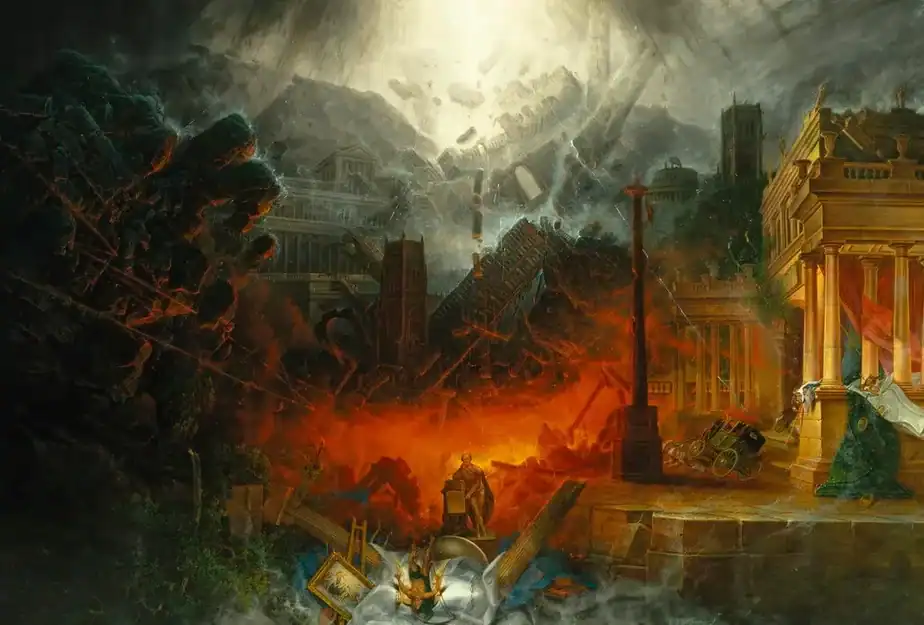Summary of Goliath’s Curse by Luke Kemp

Book Overview and Methodology
Book Title: Goliath’s Curse: The History and Future of Societal Collapse
Author: Luke Kemp, a scholar at Cambridge University’s Center for the Study of Existential Risk, dubbed “Dr. Doom.”
Scope: Considers historical calamities across various cultures, including the Bronze Age, Maya, Han China, Rapa Nui, and the Cahokia people.
Method: Analyzes a massive data set using digital analysis to find commonalities in societal collapse, departing from previous works like Guns, Germs, and Steel.
Key Insights on Collapse
Challenging the Narrative: The development of civilizations is not always a net positive; early agricultural settlers often led shorter, less healthy lives than hunter-gatherers.
“Goliath’s Fall”: Events interpreted as catastrophic “apocalypses” by the 1% (the “Goliaths”) can be seen as revolutionary actions against brutal dominance-hierarchies by others.
Example: The so-called Greek Dark Ages following the Bronze Age collapse saw the introduction of modern alphabetic writing and the Homeric epics, complicating the simple “rise-and-fall” theory.
Common Factors: Kemp identifies two commonalities preceding societal collapse: an ever-widening inequity between classes and a resistance to cultural diversity.
The Modern Threat
Uniquely Dangerous Time: Kemp argues we live in an age of pandemics, global heating, inequality, the rise of authoritarianism, dangerous AI, and nuclear risk, making the future of collapse “far grimmer than the past.”
Prediction: By averaging the predictions of various scholars, Kemp arrives at a one-in-three chance of global collapse by the conclusion of the 21st century.
Mitigation and Hope
Focus on Community: The book emphasizes the importance of community in avoiding civilizational breakdown or mitigating its worst effects.
Cooperation: Contrary to dystopian fiction, communities tend to demonstrate a high degree of cooperation during societal unravelings.
Optimism: Humanity, the author maintains, can exist and even flourish after a “Goliath has fallen.”


